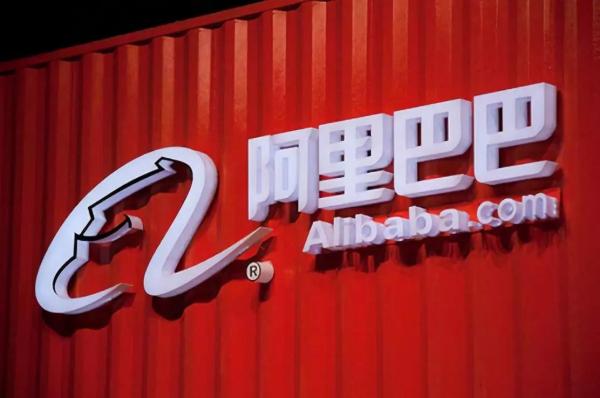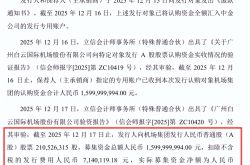Alibaba's Resurgence: A Testament to AI
![]() 03/19 2025
03/19 2025
![]() 656
656

After a prolonged period of silence, Alibaba has made a comeback, and its embrace of AI stands as the cornerstone of this resurgence.
This is evident in Alibaba's resurgent market value and its pioneering role in open-source AI models.
Among domestic internet giants, Alibaba has undeniably emerged as a formidable force on the AI frontier.
With the return of Cai Chongxin and Wu Yongming, and having honed its AI expertise, Alibaba has once again dropped a bombshell.
According to reports, Alibaba CEO Wu Yongming champions the full integration of AI across all existing business operations.
All departments have been notified that their 2025 performance will be evaluated on how effectively they leverage AI to drive growth.
Core e-commerce divisions, including Taobao and Tmall, are encouraged to adopt more AI technology. Teams are collaborating closely with engineers from Tongyi Qianwen to develop features aimed at enhancing efficiency and user experience.
Insiders reveal that Alibaba is developing a suite of AI-native applications, some of which could launch this year. "Internally, we believe that the next groundbreaking AI-powered app, potentially surpassing even Douyin in popularity, is on the horizon."
This is not the first time Alibaba has embraced AI with such vigor.
Previously, Alibaba announced plans to invest at least 380 billion yuan over the next three decades in cloud computing and AI infrastructure.
Remarkably, this investment surpasses Alibaba's total investment over the past decade and sets a record for the largest investment by a private Chinese enterprise in cloud and AI hardware infrastructure.
If we consider Alibaba's current actions as a resurgence, then this resurgence is unmistakably fueled by AI.
Assuming no unforeseen circumstances, with Alibaba's gradual return, especially as its AI adoption begins to yield remarkable results, the once-luminous Alibaba may indeed transcend its darkest hours and usher in a genuine dawn.
I
As everyone knows, following Jack Ma's departure, Alibaba endured a tumultuous period.
During this time, Alibaba's traditional core businesses not only regressed but also struggled to keep pace with the deployment of new technologies, notably AI.
This decline is evident in Alibaba's market value and the encroachment of external competitors into its core areas.
It's fair to say that Alibaba was pushed to the brink during this period.
Had Alibaba not made changes then, it would surely have been overtaken by newcomers, and the substantial advantages it built in the mobile internet era would have vanished.
Against this backdrop, Alibaba veterans like Cai Chongxin and Wu Yongming returned, initiating a radical transformation within the company.
If we summarize the profound transformation led by Cai Chongxin and Wu Yongming, focusing on core businesses while embracing new technologies stands out as a crucial aspect.
In terms of core business focus, Alibaba began divesting non-core assets.
This can be seen in the sales of Intime Department Store and RT-Mart.
Ultimately, Alibaba aims to address the issues stemming from past blind expansion by further concentrating on its core businesses, enabling it to navigate the impending capital winter.
In addition to focusing on core businesses, Alibaba has also started prioritizing new technologies, notably AI.
Whether it's the full integration of AI across Alibaba's business lines or its gradual exploration and deployment of large models through Tongyi Qianwen, it's clear that Alibaba views AI as a new direction and is investing heavily in it.
Only after undergoing this transformation led by Cai Chongxin and Wu Yongming was Alibaba able to halt its decline and begin recovering.
It's no exaggeration to say that Cai Chongxin and Wu Yongming effectively pulled Alibaba back from the brink of collapse.
II
Merely halting Alibaba's decline is insufficient. In the AI era, stagnation equates to regression.
Particularly with the emergence of DeepSeek, an AI-driven industry revolution is unfolding.
If we consider the development of AI prior to DeepSeek as exploratory and experimental, then with DeepSeek, AI has truly entered a phase of large-scale implementation and application.
This is evident in the continuous open-sourcing of major AI players and the increasing number of industries and scenarios adopting AI.
For Alibaba, to avoid missing another pivotal opportunity and regain industry leadership, it must fully, deeply, and thoroughly embrace AI, much like it embraced the mobile internet during that era.
Against this backdrop, Alibaba is integrating AI across all its business lines, leveraging it to find ways to enhance efficiency and optimize user experience.
In this era dominated by AI application and implementation, where the richness and diversity of AI use cases are being tested, Alibaba's full integration with AI aligns perfectly with industry development.
Identifying the general direction of industry development is not the key. The real key lies in how to build a robust ecosystem through continuous AI implementation, achieving a synergistic effect.
Alibaba naturally possesses such potential and strength. Whether it's Alibaba's comprehensive and diverse ecosystem or its large model foundation represented by Tongyi Qianwen, it has the prerequisites for large-scale AI implementation and commercialization.
Imagine if Alibaba integrates its numerous business lines and scenarios with AI; it will inevitably create a powerful clustering effect. This natural ecological advantage is currently unmatched by other AI players.
In this era that tests AI implementation and application, and the scale effects of AI, Alibaba's AI-driven resurgence will undoubtedly lead to its rebirth.
III
As AI development matures, particularly with the advent of applications like DeepSeek, AI competition has shifted from seizing first-mover advantages to comparing implementation and hard power.
At this stage, what truly tests players is no longer their ability to tell captivating stories to the capital market but to showcase real-world examples of seamless AI-business integration.
This is undoubtedly a new phase in AI development.
Observing the industry transformations, efficiency improvements, and user experience optimizations driven by AI, one can intuitively grasp this shift.
If we consider past AI as an era of theoretical and model dominance, then current AI represents an era of application and commercialization supremacy.
In this era, what truly determines a player's discourse power is their ability to implement AI across as many scenarios and industries as possible, making AI a tangible efficiency enhancer.
For Alibaba, it possesses the necessary conditions and foundations.
The advantages of Alibaba's Tongyi Qianwen model speak volumes.
In addition to Alibaba's forward-looking investment in large AI models, its cloud computing prowess, particularly its vast business advantages, provides a fertile testing ground for AI implementation and application.
This explains Alibaba's radical dive into AI and its unprecedented enthusiasm for embracing it.
Ultimately, Alibaba aims to seize this opportunity to reclaim its peak.
As Alibaba Chairman Cai Chongxin noted, the potential market size of AI is at least $10 trillion and could be even larger, surpassing industries like transportation and healthcare. This is why everyone should be excited about AI.
Combining these remarks with Alibaba's full integration into AI underscores the company's unwavering commitment to AI.
Given this foundation and Alibaba's rich, diverse business lines, it's plausible that Alibaba could develop killer applications akin to Douyin.
By then, Douyin, born in the mobile internet era, may face the challenge posed by Alibaba's full-fledged AI-driven resurgence, heralding a new era of competition.
Conclusion
Alibaba is embarking on a full-fledged resurgence.
This resurgence is led by AI.
If we consider the transformation initiated by Cai Chongxin and Wu Yongming as the starting point for Alibaba to halt its decline and stabilize, then this new battle to fully embrace AI marks a fresh beginning for Alibaba's counterattack.
This judgment is rooted in the fact that AI development has entered a new phase of comprehensive implementation and commercialization, and Alibaba's vast, diverse ecosystem can provide an extensive testing ground.
As Alibaba begins to synergize with AI, we have every reason to believe that an application even more popular than Douyin could soon emerge.
Alibaba is returning, and it has returned, riding the wave of AI.





